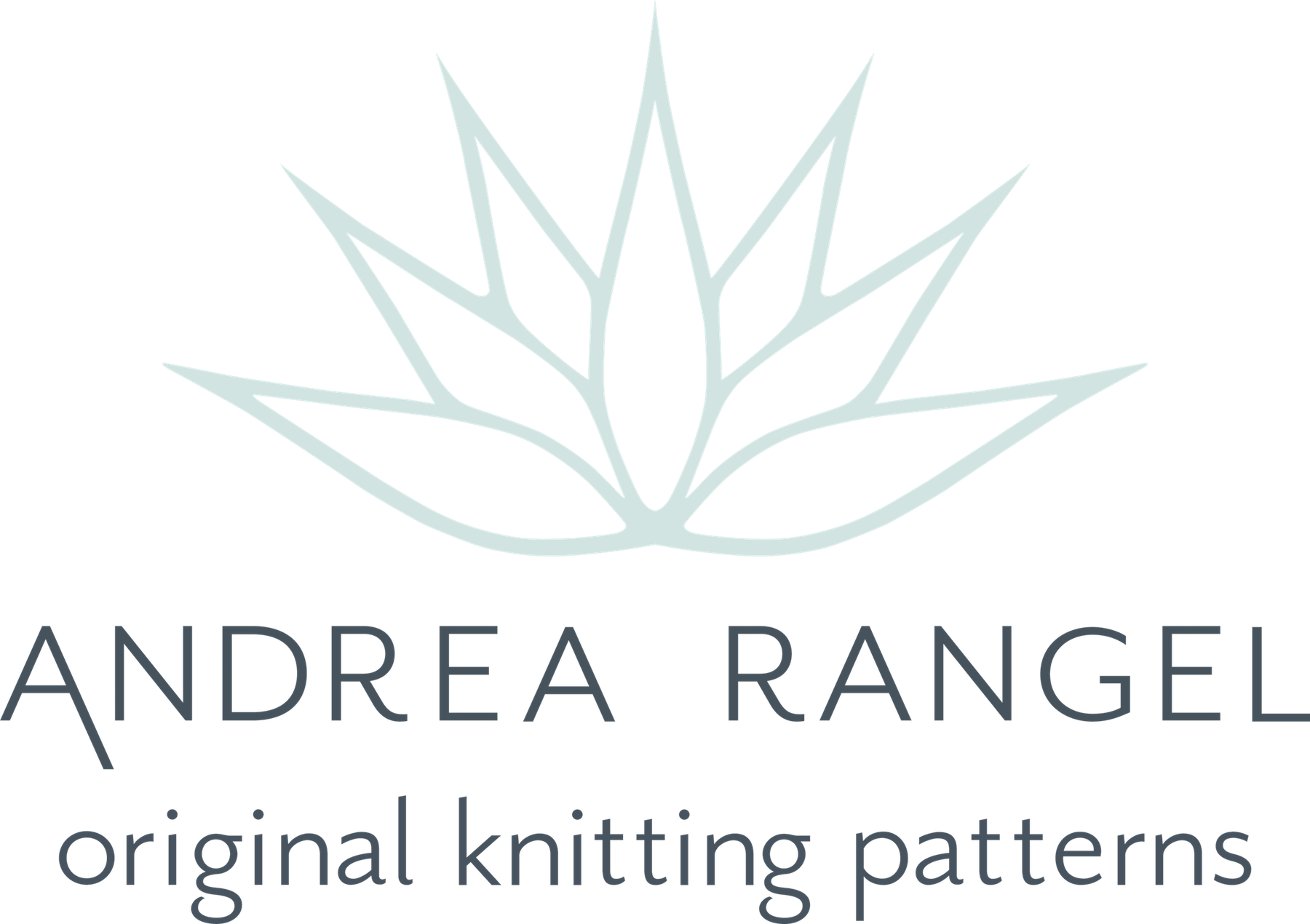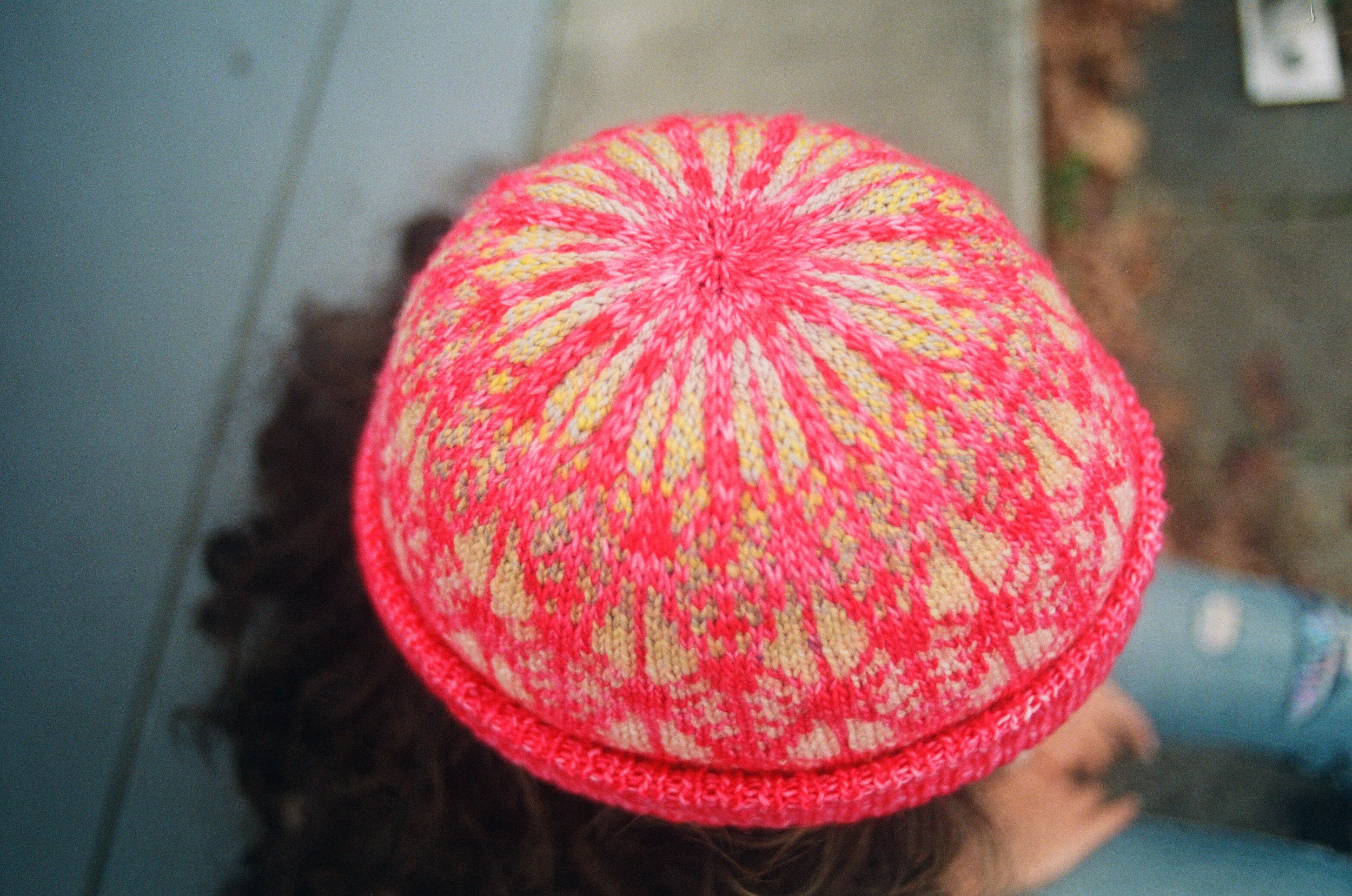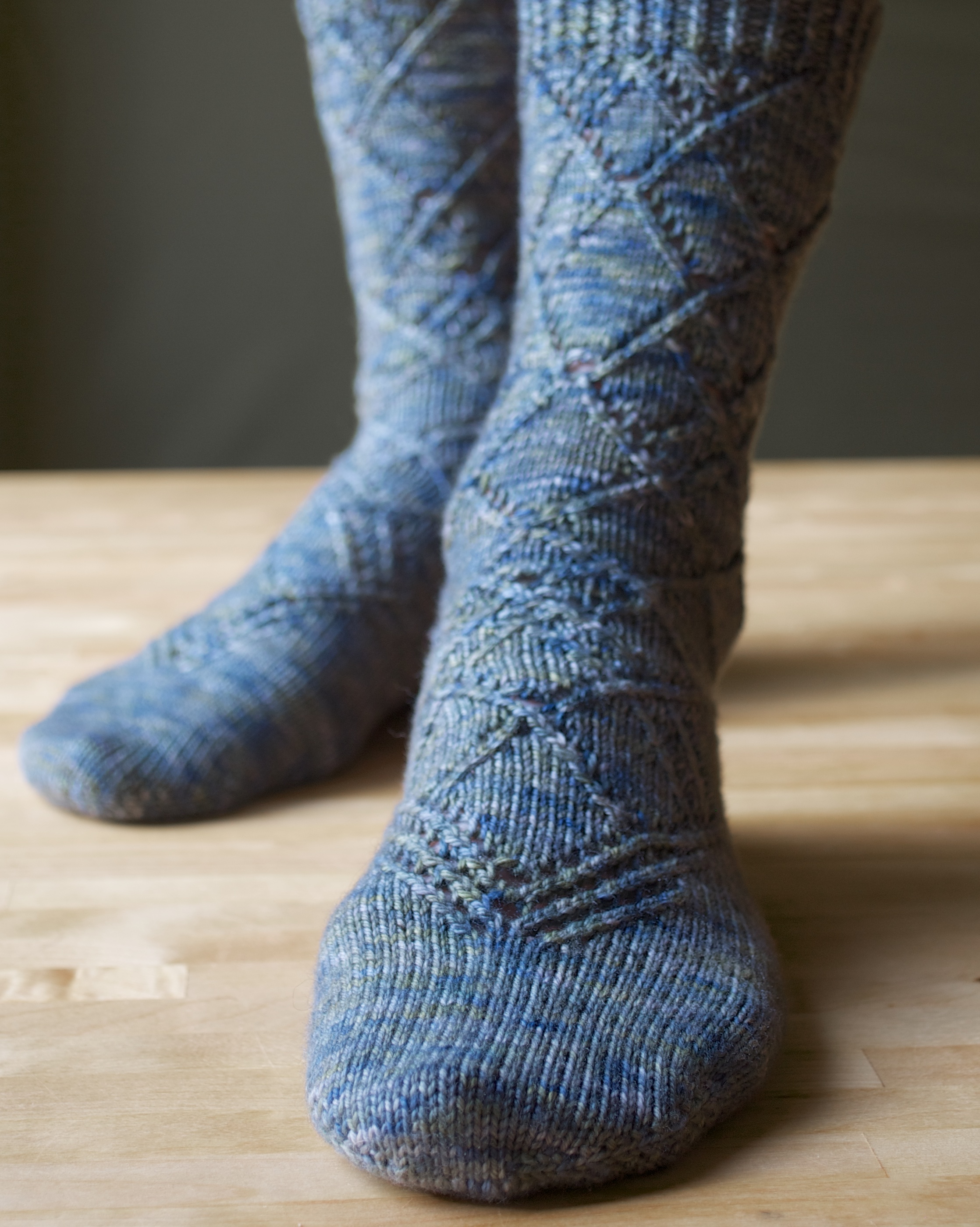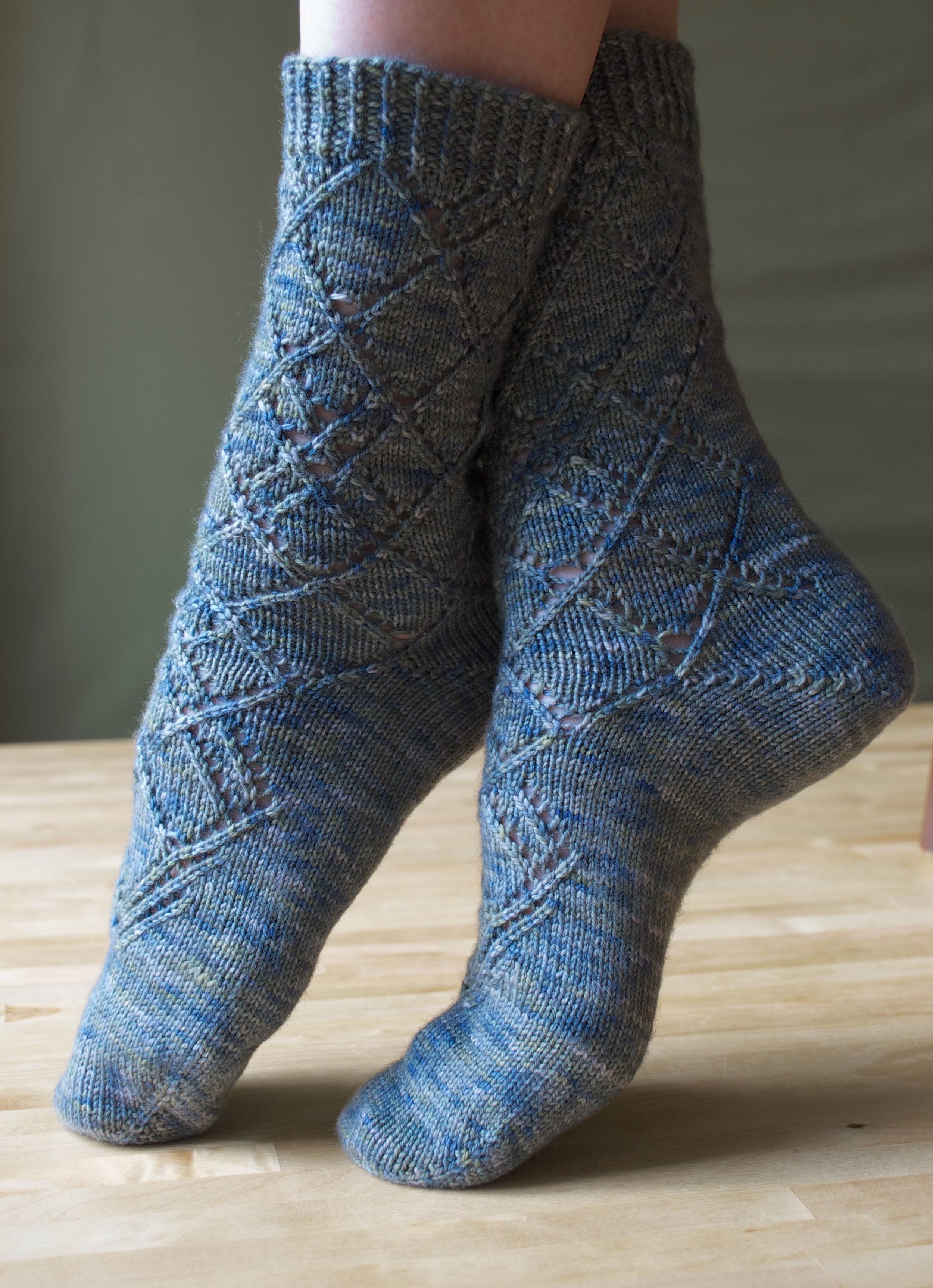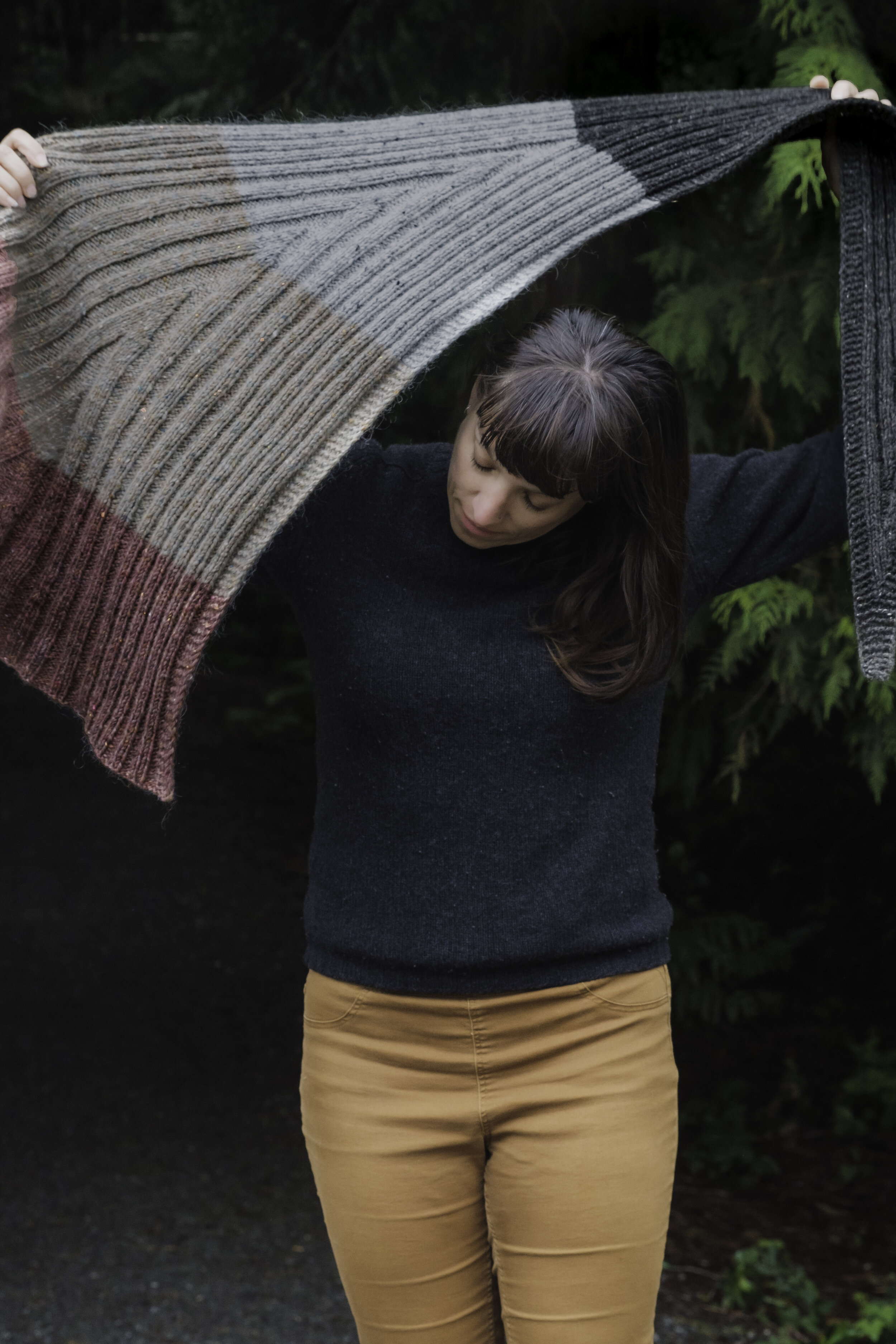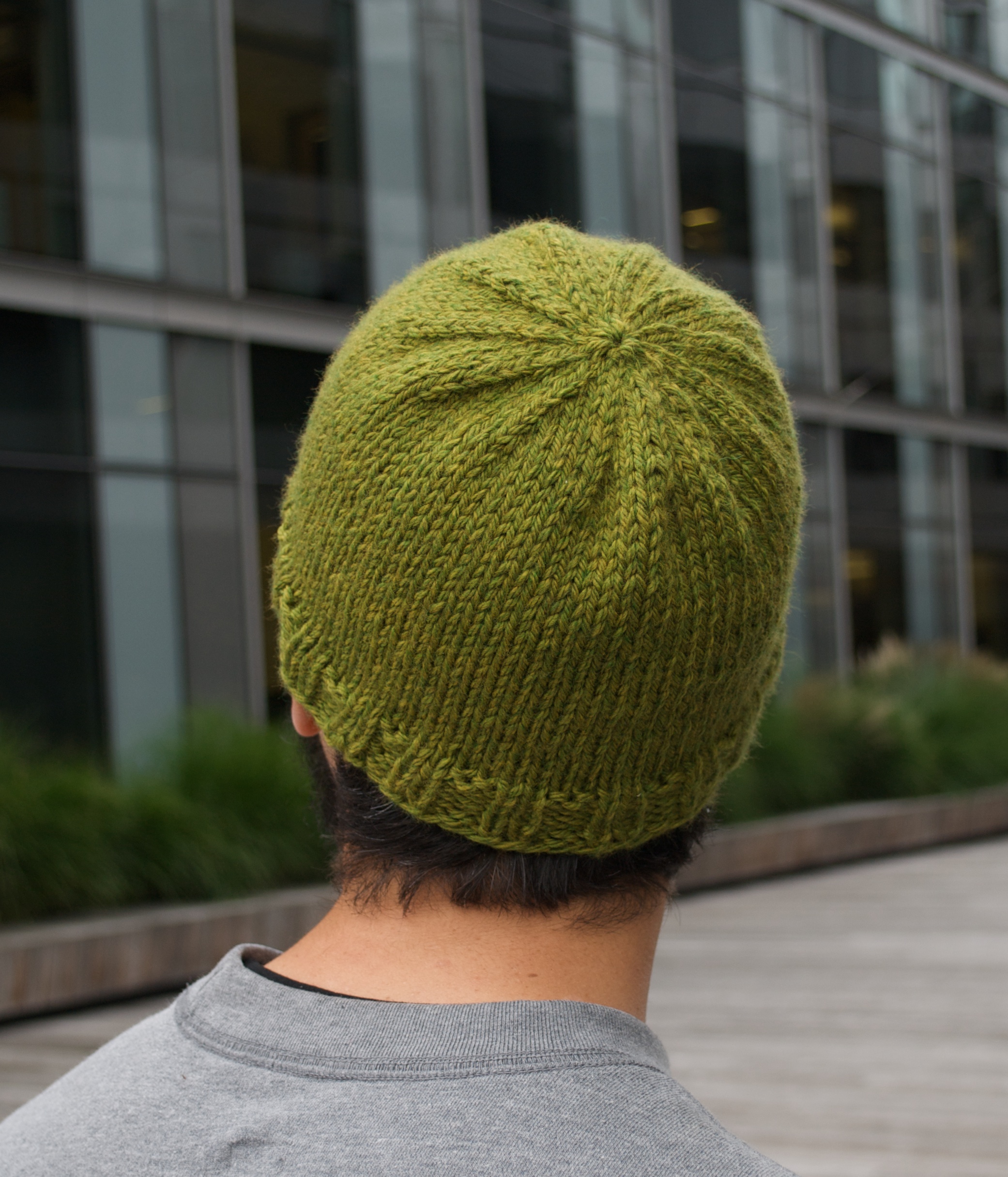Snakes in the Stonecrop
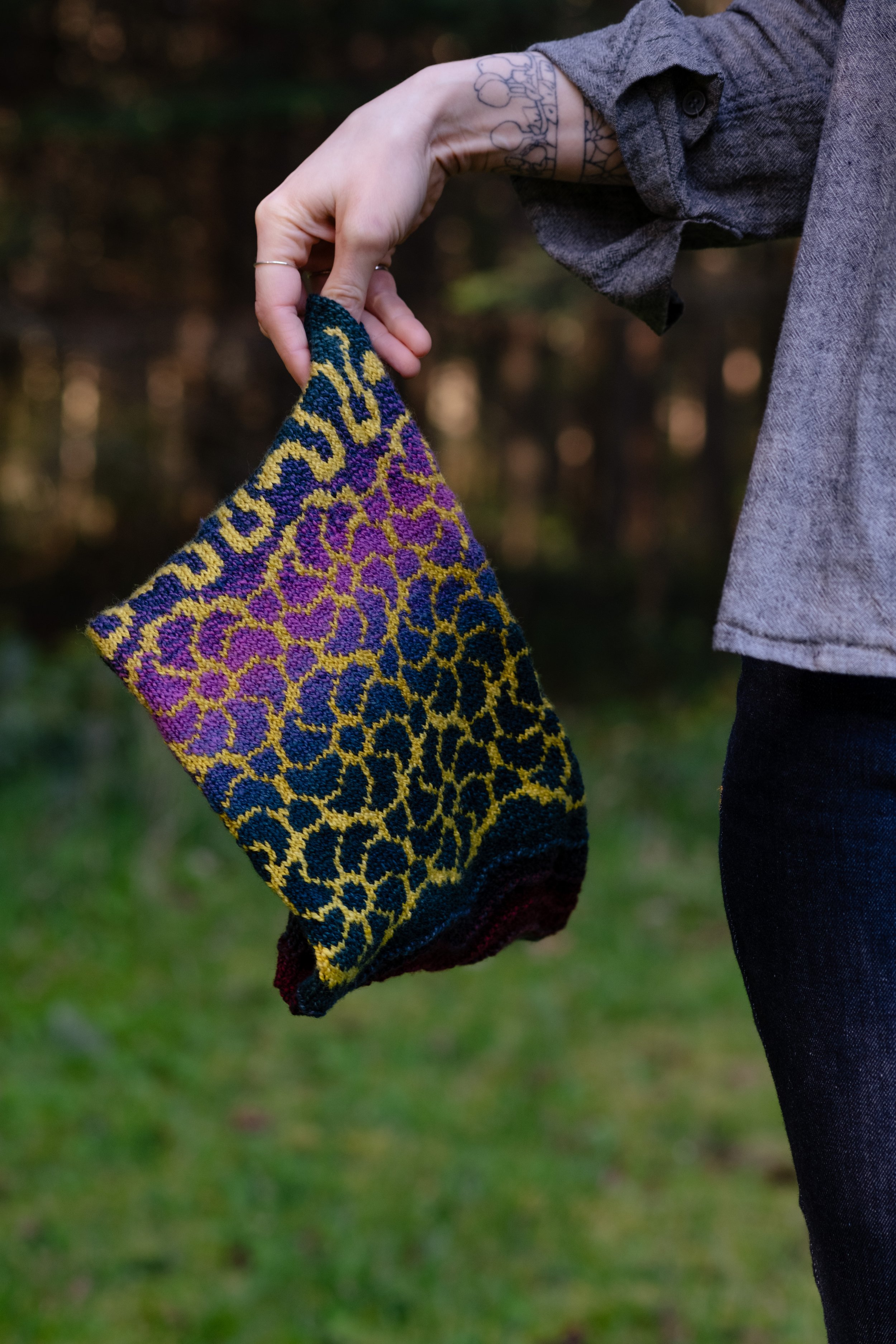
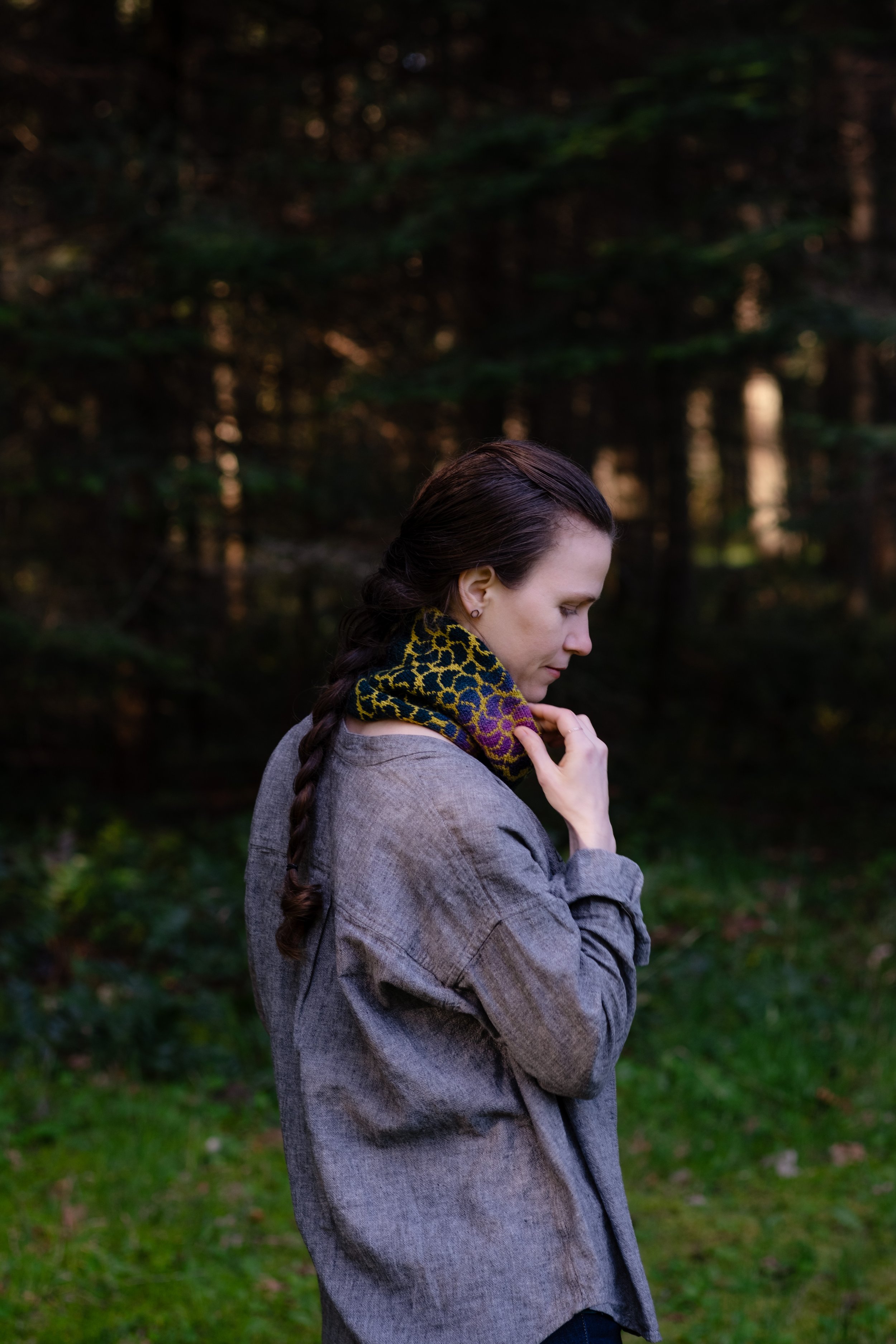
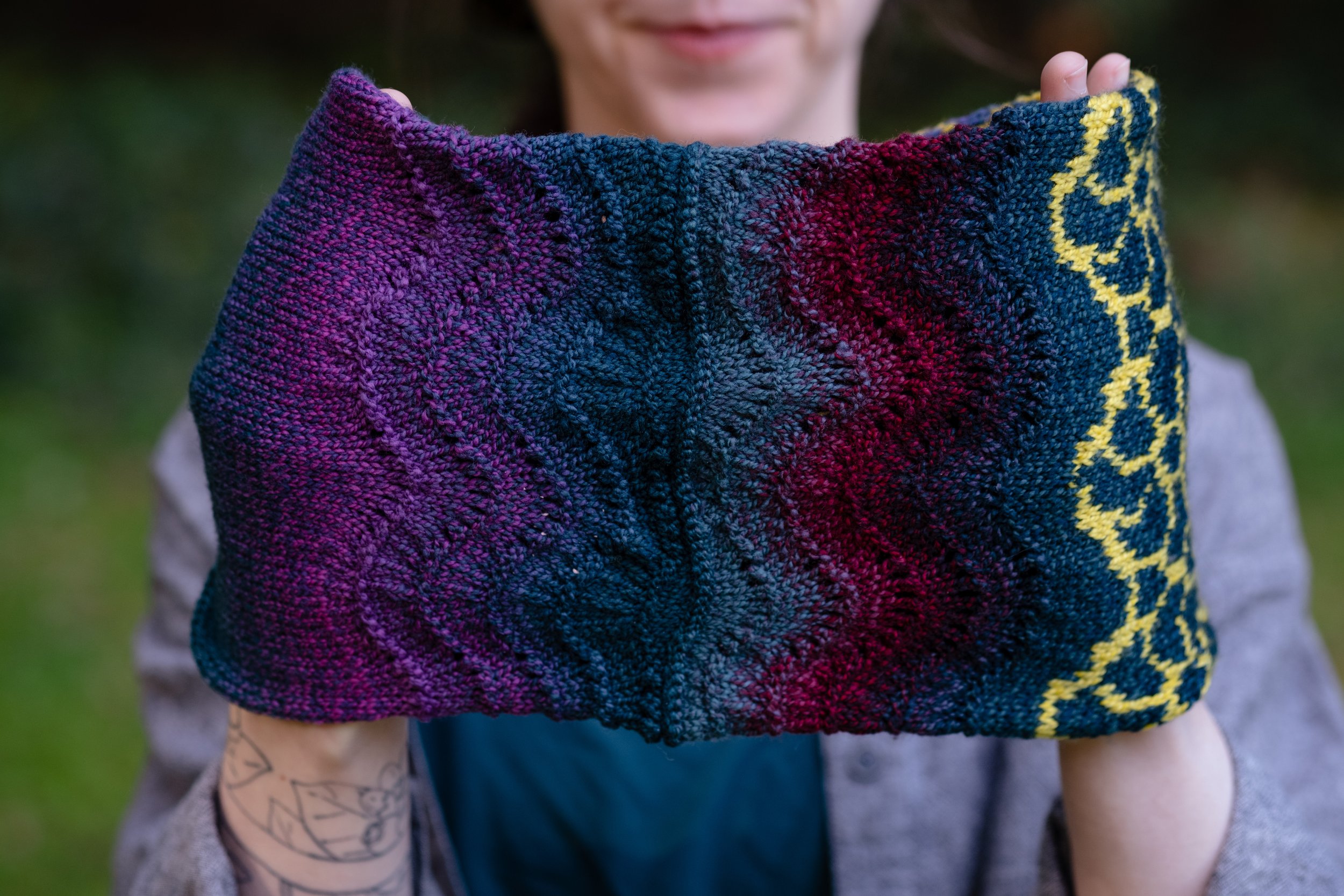

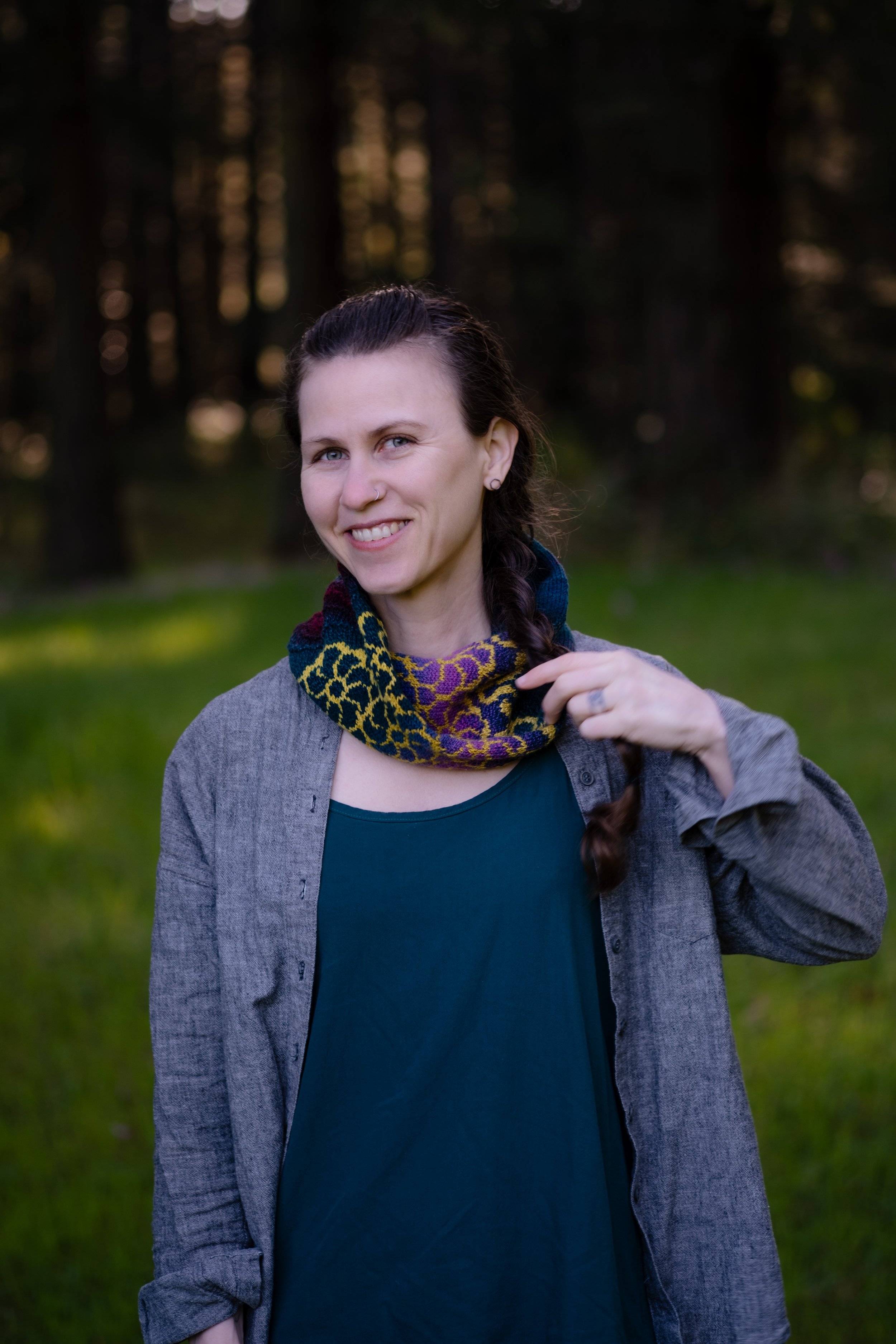
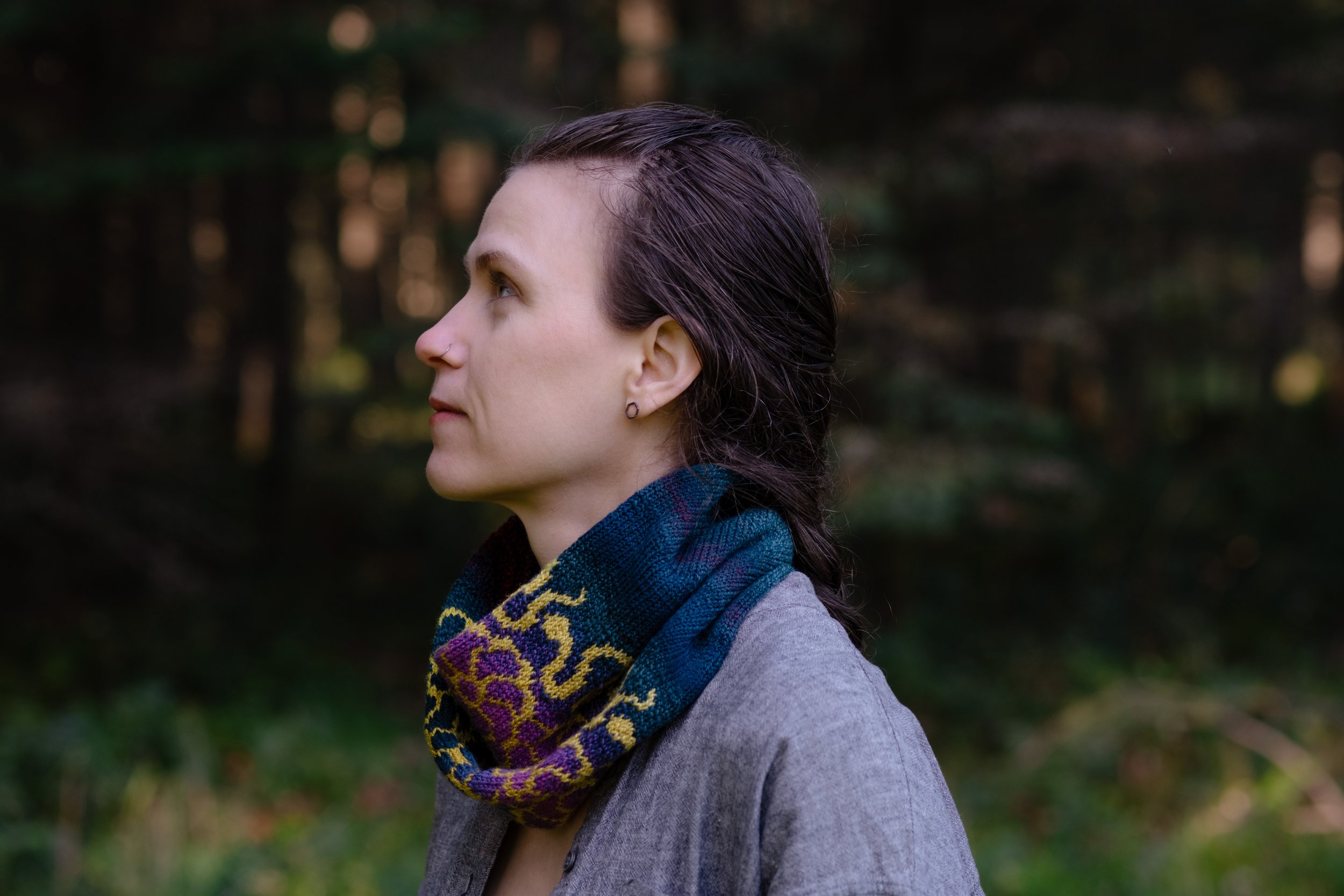
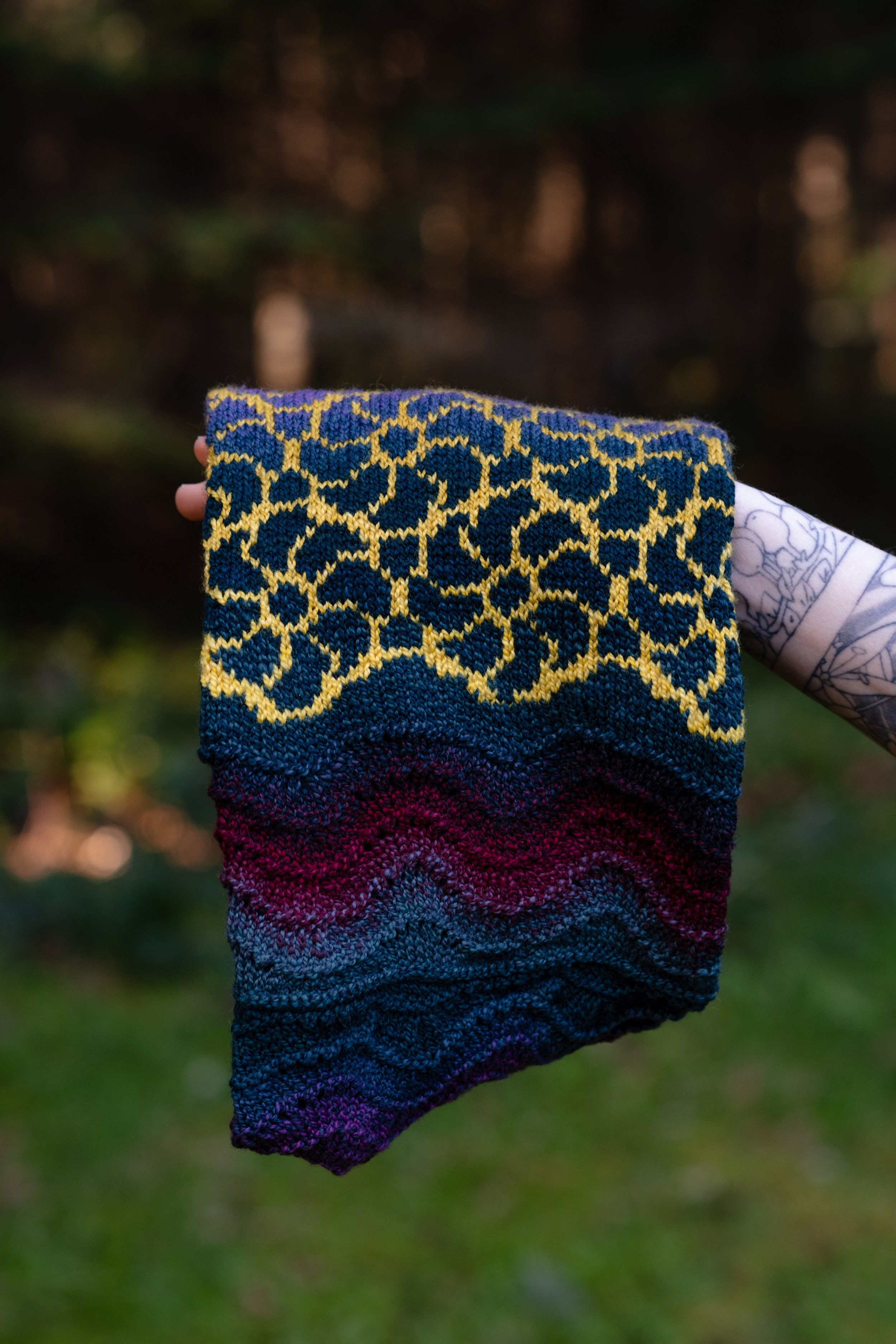
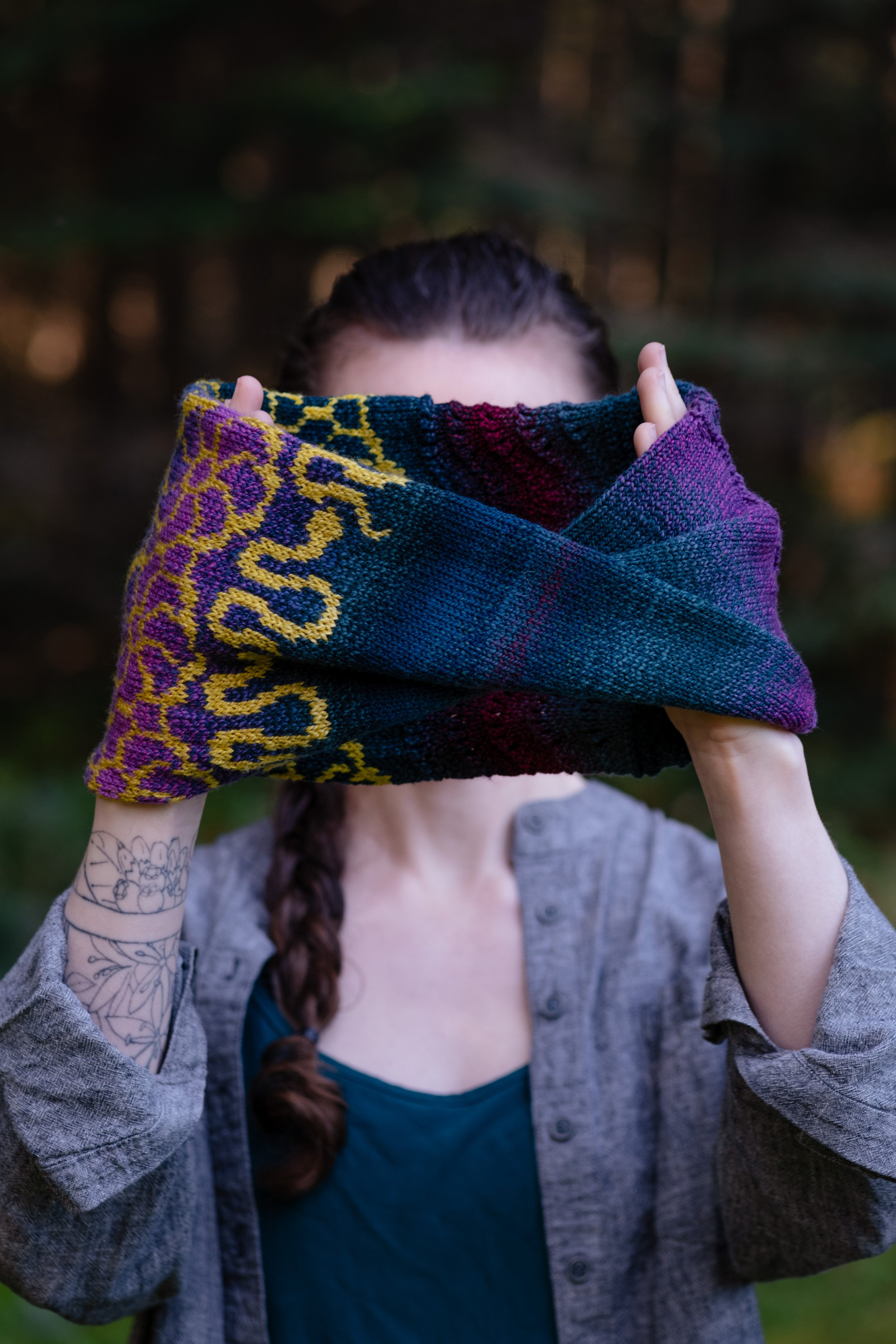
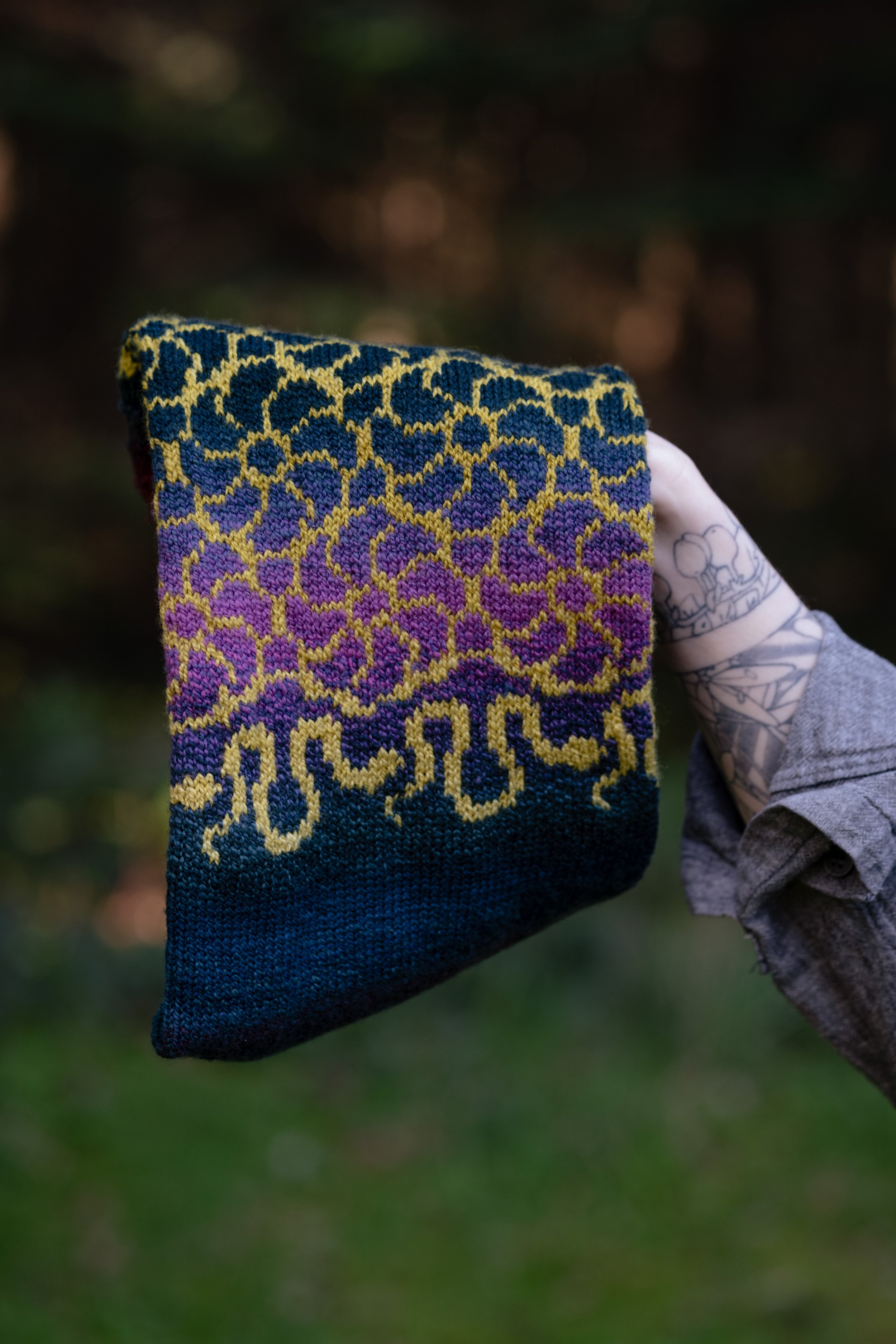
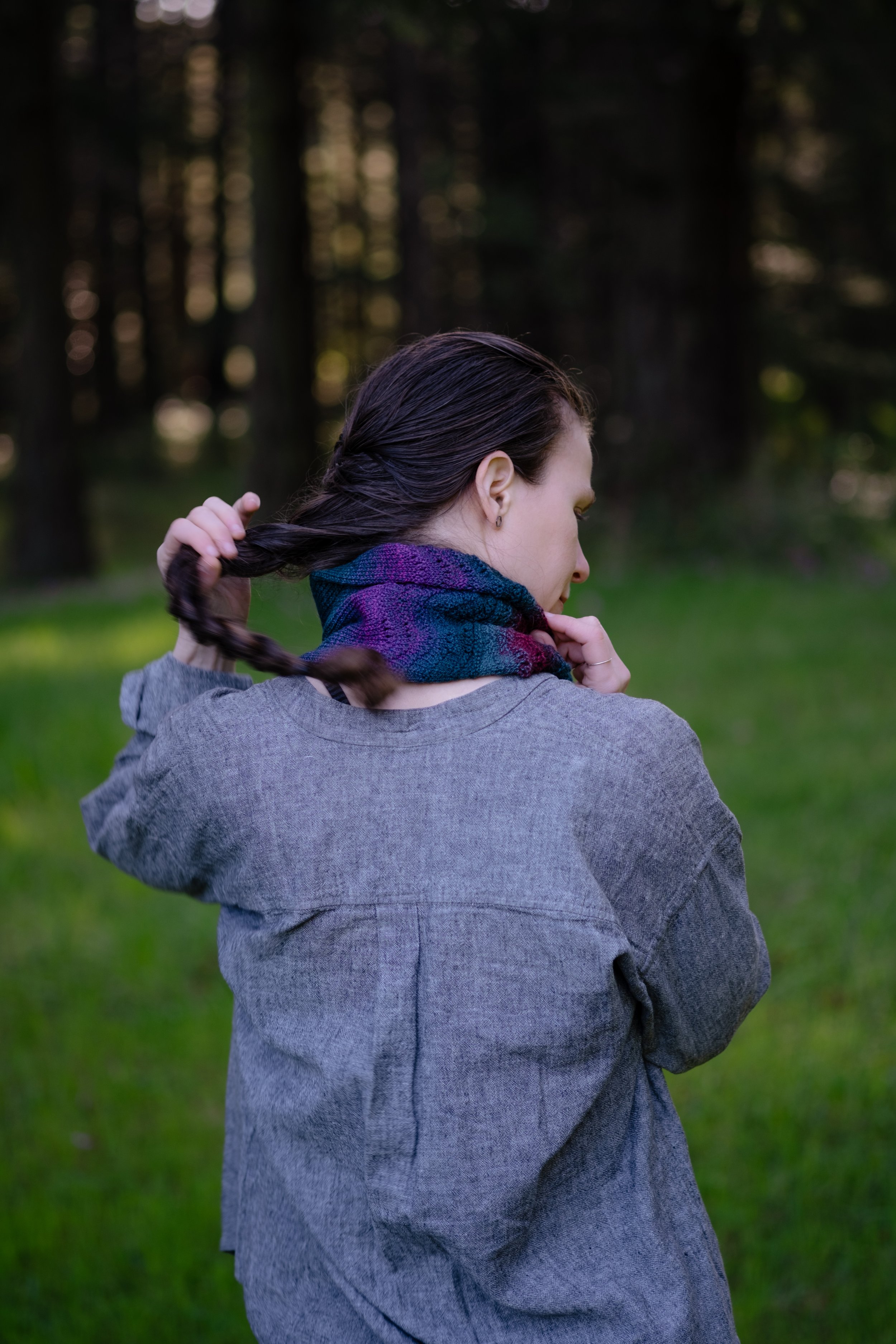
Snakes in the Stonecrop
PDF KNITTING PATTERN. PRICES ARE IN USD.
Here in Victoria, BC, we have rocky hillsides that are blanketed in verdant moss and ferns wherever there are shady spots, and adorned with pebbly stonecrop in the sunshine. Those sunny havens are where little snakes love to spread out and warm up. Snakes in the Stonecrop cowl is a joyful meditation on the small plants and critters that share our favourite hiking trails. I designed it to celebrate the twentieth anniversary of Spincycle Yarns, their stunning colours, and all the delight they’ve brought to the fibre world.
Construction
Cowl is worked as a tube in the round, beginning with a crochet provisional cast-on. After completing the knitting, provisional stitches are removed, the tube is turned in a half-twist, and the ends are joined with three-needle bind-off.
Finished Dimensions
Cowl Circumference: 22.5 in/57 cm
Tube Circumference: 15 in/38 cm
Yarn
Yarn quantities are approximate.
450 yd/412 m sport weight yarn
Main Colour: 390 yd/357 m
Contrast Colour: 90 yd/83 m
Shown in
Spincycle Yarns Dyed in the Wool
(100% superwash American wool; 200 yd/183 m)
Main Colour: Good Omen; 2 skeins
Contrast Colour: Scranton; 1 skein
Blocked Gauge
30 stitches/40 rounds = 4 in/10 cm in Stockinette stitch with smaller needle
30 stitches/32 rounds = 4 in/10 cm in colourwork with larger needle
Needles
Adjust needle size if necessary to obtain correct gauge. Use set DPNs, long circular needle for magic loop method, or other preferred small circumference knitting method.
Old Shale and Single-colour Stockinette stitch:
Suggested Size US 3/3.25 mm needles
Colourwork:
Suggested Size US 5/3.75 mm needles
Notions
fingering weight waste yarn
size D-3/3.25 mm crochet hook
stitch markers
spare circular needle 16 in/40 cm or longer in same or smaller size than smaller needle
tapestry needle
blocking wires, pins, and pinnable surface
spare DPN size US 3/3.25 mm
Skills
I consider this an intermediate level pattern. Techniques used include provisional cast-on, working colourwork from charted instructions, working lace from written and/or charted instructions, and three-needle bind-off.
Helpful Tutorials
7 Tips to Improve Your Colourwork
Weave in Your Ends with Duplicate Stitch
Knitting Colourwork with Two Hands
